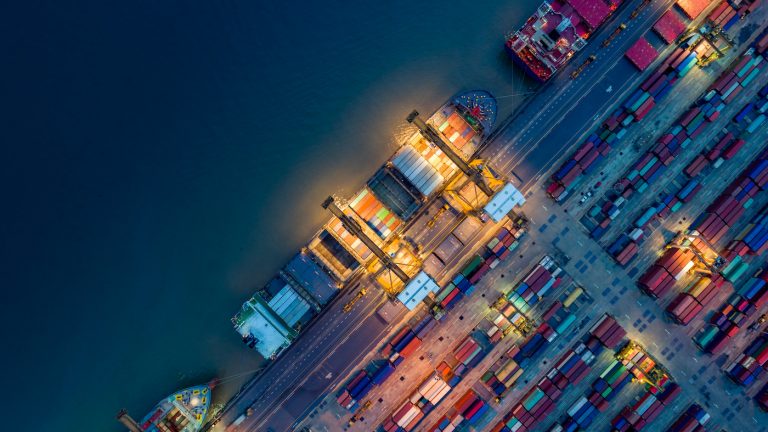Supply chain delays continue to grab headlines and create real headaches for buyers and suppliers.
Much of the delay is rooted in the Covid-19 pandemic. Worker absence continues to slow down production. Ports are congested, containers are in the wrong place and shipping companies are shortening or cancelling routes. As a result, stiff competition for space on container ships increases shipping costs and causes significant delays. This in turn is leading to an influx of disputes between suppliers and purchasers.
 Where deliveries are delayed, the most pressing question for either party is ‘can the contract be terminated’? Clare Mackay, Senior Associate, in the Commercial Litigation & Dispute Resolution team at law firm SA Law provides some guidance.
Where deliveries are delayed, the most pressing question for either party is ‘can the contract be terminated’? Clare Mackay, Senior Associate, in the Commercial Litigation & Dispute Resolution team at law firm SA Law provides some guidance.
The starting point in such a dispute is to look at the contract. Does it clearly state when the goods are to be delivered and in what quantities? Critically, does it state that “time is of the essence” for delivery or does it expressly state that the agreed delivery date is a condition of the contract?
If time is stated to be of the essence or if the time for delivery is a condition, any delay will enable the purchaser to terminate the contract with immediate effect.
Without such a statement, there is no presumption that a stipulation as to time makes it ‘of the essence – and the point will be determined by construing the contract as a whole alongside the factual background against which it was made.
This scenario has just been played out in Pharmapac (UK) Ltd v HBS Healthcare Ltd [2022] EWHC 23 (Comm). Here, a contract was made in March 2020 for the supply of 5 million facemasks from India to the UK. There was no express clause which made time of the essence and the timeframe for delivery was not a condition of the contract. Instead, there was a set date for delivery of the first tranche of masks but thereafter a statement that the balance of the masks would be delivered “weekly” without specifying quantities or on what day a delivery would be made.
The supplier made the first delivery but failed to make any others, blaming export controls imposed by the Indian government. The developing Covid pandemic meant that there was an urgency for the supply, demand was high, and the price was being pushed up by soaring worldwide demand for PPE. Even though the supplier was not in complete control of its supply chain, the Court found that time was of the essence. The delay in supplying the balance of the masks therefore entitled the purchaser to terminate the contract and claim back the monies that they had paid.
Given the global difficulty of securing shipping, suppliers negotiating new contracts should resist attempts to make time of the essence or the delivery dates a condition of the contract. Instead, the term dealing with delivery should be flexible enough to accommodate any anticipated difficulties in moving the goods through the supply chain. Buyers on the other hand will push back on such a clause and will be looking for definite dates for delivery.
If problems arise and both parties agree to reschedule the delivery date, the best way to do this is by a formal variation of the contract. Care should be taken to check whether the contract has specific requirements to produce binding variations, for example they are in writing and/or signed by the parties’ directors. Such clauses will be upheld and will prevent any oral variations. To be binding, any variation will also require fresh consideration to be given by the parties (i.e. they must give something of value over and above continuing to perform their existing contractual obligations). The simplest way to overcome this hurdle is to make any variation by deed.
Force majeure clauses have been very much in the spotlight during the pandemic. A force majeure clause excuses one or both parties from performing their contractual obligation if the delay or failure to perform is caused by an event set out in the clause (which are usually events beyond their control). Such a clause can also be drafted to enable parties to suspend performance of their respective obligations for a period of time and may also include termination rights.
If a force majeure clause is engaged, there is no liability for the party who is unable to perform its obligations, provided that the force majeure event is the only effective cause of the default. Whether delays resulting from the impact of the pandemic on the supply chain is caught by the force majeure clause will depend on the clause’s construction against the factual matrix which the contract was made. For contracts being entered into today, careful drafting is needed to deal with the ongoing impact of Covid and the force majeure clause should be clear whether it is intended to cover foreseeable as well as unforeseeable events.
A well drafted contract should pre-empt issues that are likely to arise during its term. While consumer spending remains high at present, the increase in interest rates, the upcoming rise in National Insurance and the hiking of energy and food prices are all likely to have an adverse effect on household budgets and burst that bubble. Whilst the knock-on effect may bring some relief to supply chain backlogs but will bring with it other issues where demand declines, and parties will seek to exit from contracts which are no longer profitable. The key lesson is to ensure your contract sets out where and when goods are to be delivered to minimise the risk of disputes over supply arising in future.



